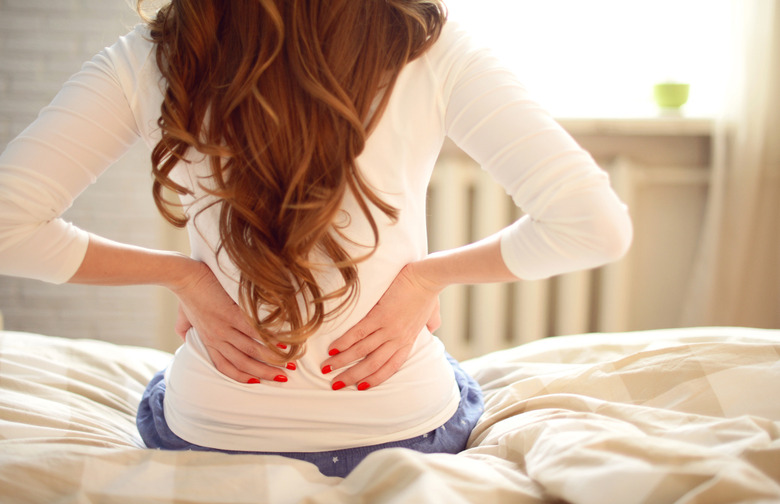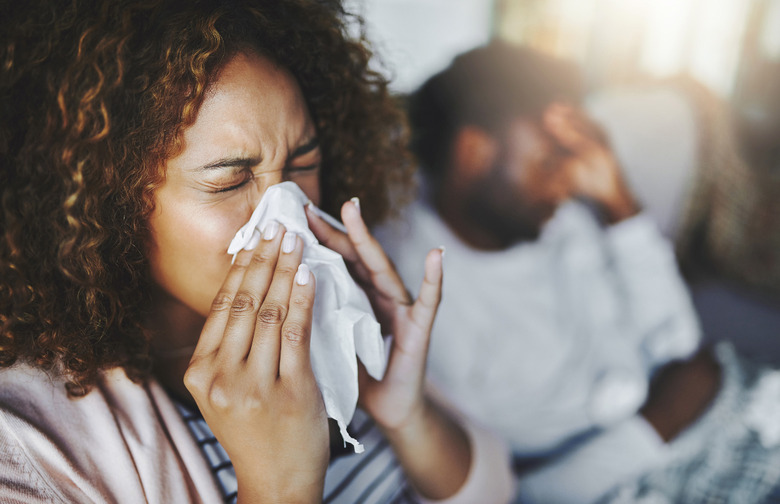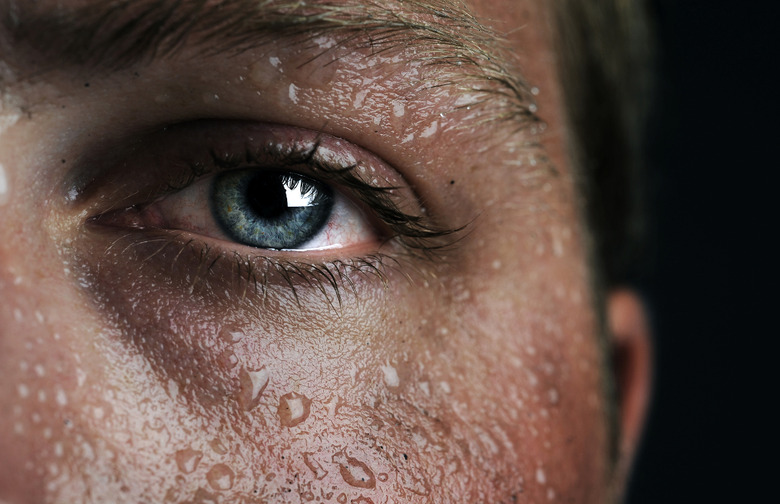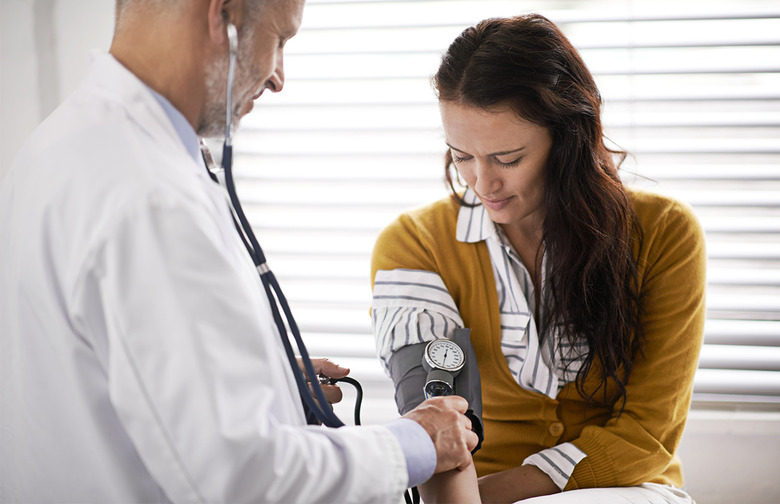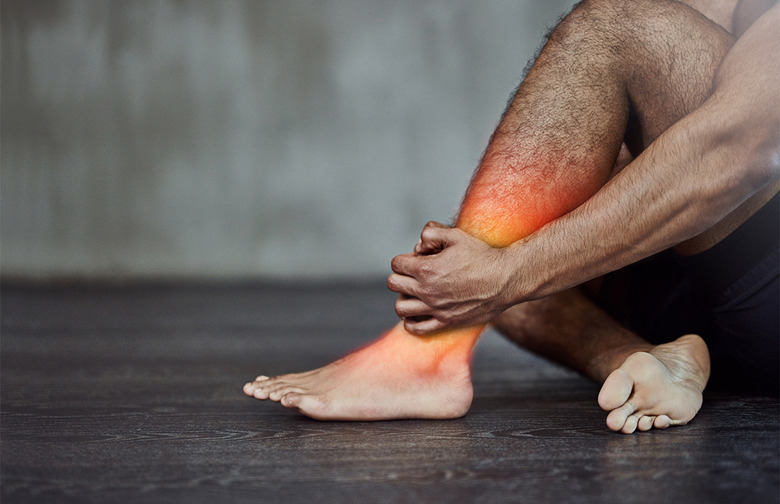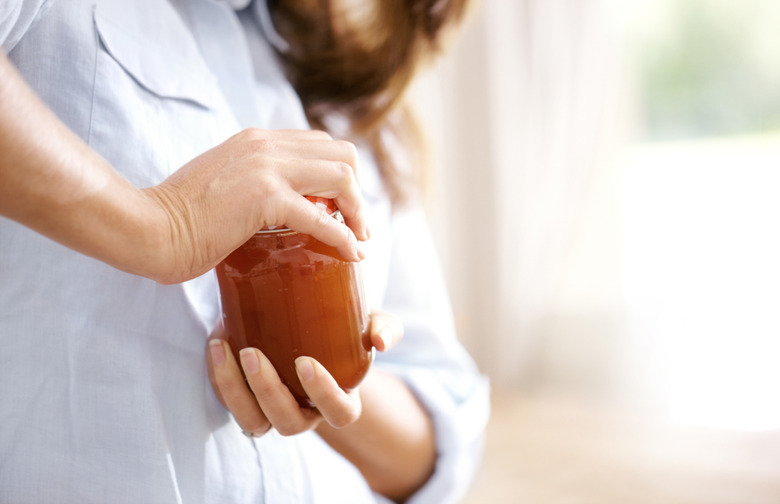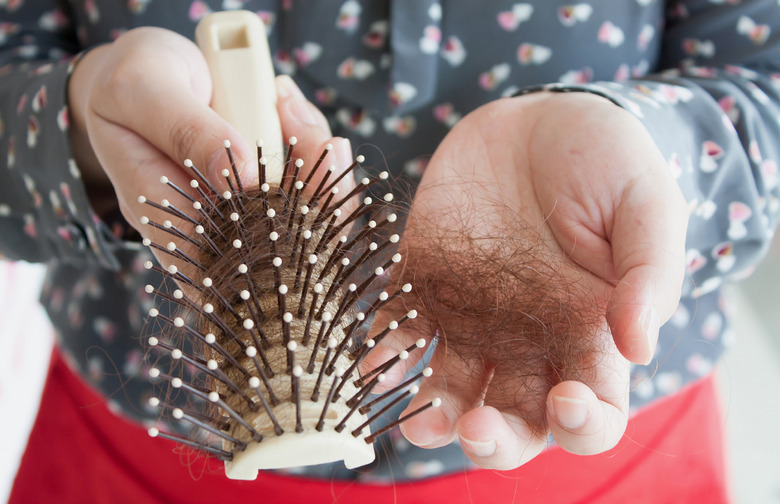Surprising Signs You Need More Vitamin D
'Tis the season to be jolly? According to science, not so much. During the winter season, rates of depression, anxiety, and overall dampened moods are almost always on the rise, and one of the nutrients to blame is definitely vitamin D.
It's easier than you'd think to up your vitamin D intake. Commonplace foods, such as fish, eggs, and these eight others, are packed with the nutrient and can help you ward off deficiency. If these foods aren't enough, you can also purchase vitamin D supplements for a relatively low price at your local drugstore. No matter how you do it, one thing is for sure: You need to up your vitamin D intake this season.
Because the human body is amazing, your skin actually synthesizes vitamin D on its own, meaning that exposure to sunlight usually supplies the vitamin D you need. During the winter months, though — especially after daylight saving time ends — your sunlight exposure is likely lacking. And in the winter, vitamin D deficiencies skyrocket. Vitamin D deficiency has become so common, in fact, that the Centers for Disease Control and Prevention names it the most common vitamin deficiency in the country, with as many as 30 million Americans suffering each year.
So how can you tell if you're one of them? Do you really need to be taking those supplements, or are you throwing your money away buying bottle after bottle? While you should consult your doctor before making any assumptions about the vitamins or minerals at fault for your symptoms, these surprising signs could indicate you're affected with a vitamin D deficiency.
Achy Joints
If there's anything your school taught you about nutrition, it's probably that your bones and joints need calcium. The milk mineral fortifies your bones and strengthens your joints to minimize pain and protect against fracture.
Without vitamin D, your body has a really hard time absorbing the calcium you're giving it. In one study, people with vitamin D deficiencies were nearly twice as likely to experience pain in their legs, ribs, or joints. Their vitamin D deficiency was probably causing a calcium deficiency, too.
Back Pain
Yet another symptom of calcium deficiency is lower back pain. Aches and cracks in your lower back could be caused by a need for vitamin D, according to results from a few studies. In one study observing 9,000 older women, participants with severe back pain were significantly more likely to also have a vitamin D deficiency. For some women, the pain was debilitating and chronic. You know what's cheaper than monthly massages? Vitamin D supplements.
Constantly Coming Down With a Cold
Getting sick in the winter might seem inevitable, but if you're always sniffling with no end in sight, something is up. A vitamin D deficiency could be part of the problem. The vitamin plays a pivotal role in immune response and function, according to some studies. Instead of throwing yet another tissue box in your shopping cart, consider buying some vitamin D supplements to stave off your cold.
Depression
This is practically common knowledge — without vitamin D, you're more likely to feel blue. The link isn't as strong as we thought, though. According to a recent analysis, only 65 percent of all studies have observed a correlation between depression and vitamin D. It's definitely a possibility, though. So if you are feeling depressed, after you consult a mental health professional to help treat your depression it might be wise to take a look at your vitamin intake.
Excessive Sweating
If you're sweating a little, don't sweat it — a little perspiration is good for you to cool off and clear out toxins from the body. But if you can't catch a break with the constant pit stains, it could be time to take a closer look. According to Michael Holick, MD, an expert on vitamin D , one of the first signs of deficiency is often a sweaty forehead.
Fatigue
Wondering why you're always tired? The lack of sunlight might play a role. A large observational study assessed levels of fatigue in women over an extended period of time. The researchers found that women who were more alert and had a higher quality of life also had higher levels of vitamin D in their systems. Other studies have found that bouts of exhaustion and unexplained fatigue could be minimized with a vitamin D supplement. Maybe you don't need another cup of coffee at all — maybe you just need some vitamin D.
High Blood Pressure
Vitamin D doesn't just make you happier. It also boosts your heart health, supporting the muscles that keep your blood flowing and your atrium pumping. Your heart is a key regulator of blood pressure, so if your heart is struggling to get the nutrients it needs, your blood pressure could begin to soar.
Muscle Pain
Sometimes, it's beyond just soreness. In a study assessing chronic pain in patients, there was a 71 percent greater likelihood of soreness in patients deficient in vitamin D. Scientists speculate that this is because the vitamin D receptor is present in nerve cells called nociceptors, which sense pain. An experience of aches, pains, and general muscle discomfort is either a sign you need to rest way more or you need to incorporate some vitamins into your diet.
Muscle Weakness
Muscle strength isn't just made in the gym. Vitamin D intake has been correlated with better muscle control, strength, and growth over time. If you're feeling wimpy, it could be a sign you're deficient.
Slow Healing of Cuts and Bruises
If everything's functioning as usual, your bruises and cuts should heal in a matter of days. If it's taking any longer than that, you might want to look into possible causes. Malnutrition of any kind can play a role, but this is especially true for vitamin D. The nutrient has a mitigating impact on inflammation in the body, therefore speeding up the rate of recovery after injury.
Thinning Hair
Is your hair falling out? Science says you could just be really stressed. Or, you could need more vitamin D. Hair loss in women has been linked to a deficiency in the nutrient, though scientists want more research on the topic before confirming the cause. If you don't want to wait for the research to get hair that belongs in a shampoo commercial, try eating these foods for a great head of hair now.

